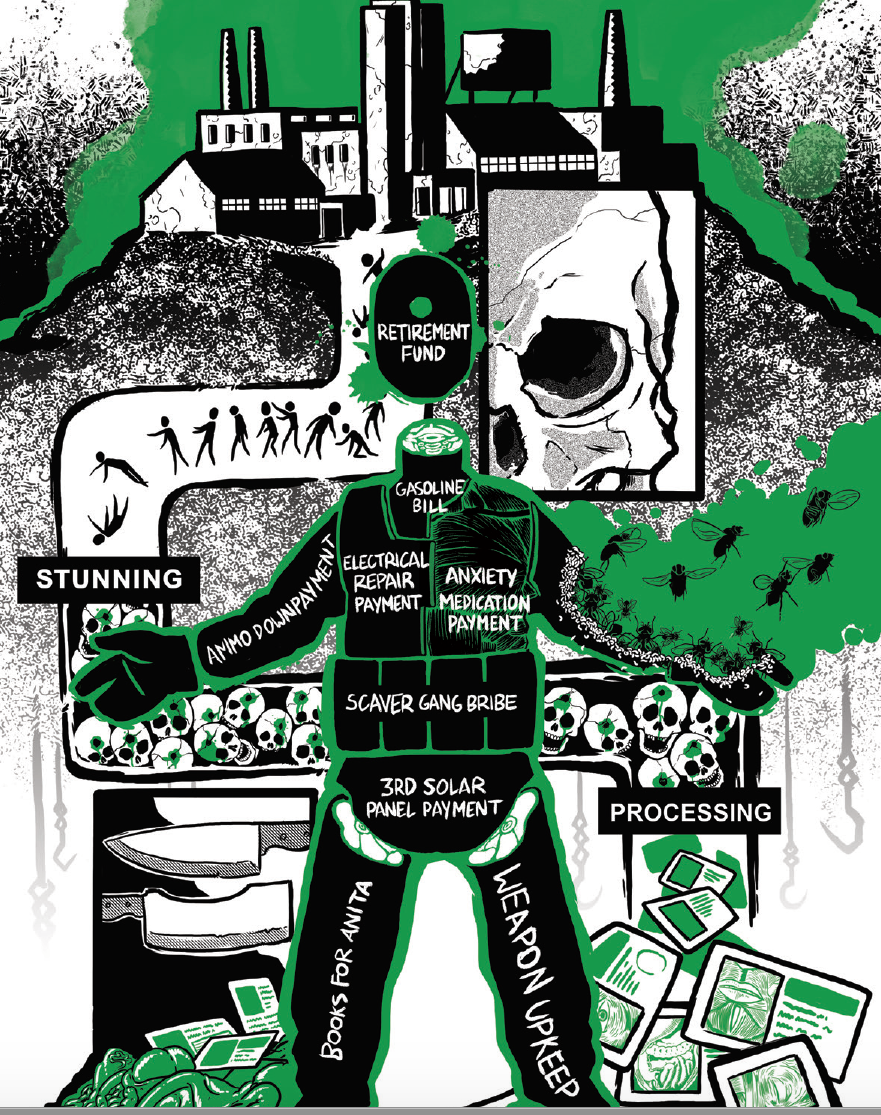I have no idea what this is lol
Was wondering about this too. I thought I was modded. Don't know if ready for responsibility but thought okay I'll do my duty and help take load off mods.
Now that I see others see it to I'm relaxing.
It's a bug, if you press any buttons, it said "error_not_mod_or_admin" at the bottom of your screen. Tried to ban myself and it didn't work :(
I appointed myself a mod about half an hour ago so you all better get your shit together
I used my newly acquired mod powers to de-mod you actually, so back to the riffraff with you
Petition to turn that into a permanant feature. you can ban but not unban yourself.
but also remove the "are you sure" dialogue and just add it as a button, one missclick and youre out.
the true anti-drunk poster measure
Become mod bring back downvote then abolish the mod position
-Soulja
Oh the apple, pineapple, banana equation? My equation-solving powers only gets far enough to need two more equations to solve them, I never learned well that trick with the matrix
Huh, and how do you decipher the lenght of the numbers? I used to really like math
there's a link in the thread that goes through the solution but I don't have it on hand
https://www.quora.com/How-do-you-find-the-positive-integer-solutions-to-frac-x-y+z-+-frac-y-z+x-+-frac-z-x+y-4
found it
a very fascinating diophantine equation
alright I wasn't that much interested anyways.
Why the fuck every math wikipeida article is so fucking indecipherable, like c'mon dumb it down dammit.
Edit: turns out diophantine means "polinomial"
think it's a specific type of polynomial (two or more unknowns and integer solutions) but I just learned the word, so
They do have a common factor actually. It's an elliptic curve problem, as I now explain to you like I know what the hell I'm talking about and not like I read the quora solution.
If they have a common factor then you can find a solution that doesn't by dividing all of them with that common factor.
lol u guys talk all day about reading theory but nobody is writing e2e tests
I actually get weirdly anxious when I'm near the button. Like "oookay, DO NOT accidentally appoint as mod. that would be bad, and you might get yelled at. "
I know its hard to just accidentally do, but I find myself being way too cautious about it.
I found a lot of other much stronger restrictions that practically completely restrict one of the 3 variables as well as put a bunch of restrictions on the other two and I think it can be done. Or maybe not idk it's still huge.
Like I saw in a comment you said that you got that c < k(a+b) for some k and similar bounds for a and b. This doesn't actually restrict the size of a, b, and c, it just says that they can't be too far apart from each other. However, by too far apart, we're talking like half the size of each other. This gives a restriction similar to saying that a, b, and c have to give sides that can form a triangle. But there are infinitely many triangles with integer length sides.
(The actual restriction you found is actually even weaker than the triangle thing.)
Say you found a method that only required you to do some sort of test on prime numbers up to the solution. Unfortunately for you, the number of prime numbers under the smallest solution for this problem has almost 80 digits.
I think what I need to convey is that this is a genuinely hard problem. Like the kind of problem that takes years and years of study at the graduate and research level to be able understand and answer. In particular, it's not the kind of thing that like "first instinct" elementary methods are going to work on.
Here is a link to a paper that discusses this and similar problems: https://asu.pure.elsevier.com/en/publications/an-unusual-cubic-representation-problem
Like I saw in a comment you said that you got that c < k(a+b) for some k and similar bounds for a and b.
I made a post where I found a method to iteratively get the bounds really really tight. I don't know how tight exactly they can go as of yet because I didn't bother that much but you can get them really really tight. If c=k(a+b), then at first you restrict k from 2.5 to 4, then the next step gets it to like between 3.2 and 3.7 or something and you keep going. It's possible that it may actually converge to something, I'm not sure, I didn't keep it up. Thing is, that only restricts c in terms of a+b which is a bit of an issue. Now if the simplest solution is like 80 digits long then that's still an issue because these are not good enough restrictions, however I think if I spend a little bit more time I can figure out a few more.
I think what I need to convey is that this is a genuinely hard problem. Like the kind of problem that takes years and years of study at the graduate and research level to be able understand and answer. In particular, it’s not the kind of thing that like “first instinct” elementary methods are going to work on.
It is really hard to solve, yes, but it is generally not as hard to find an assisted brute force method to find SOME solution, even though the general problem may be much much harder.
One issue is that I know next to nothing about computer stuff and I don't know what is feasible and what isn't. But you can certainly restrict your search a bunch.
I recognize there is an issue where the numbers are so damn big that you can restrict like 99.9% of combos you have to check and it may still be too much. But now you're gonna make me go back and try to find more restrictions lol








